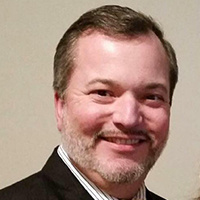 Moore Juvenile Law Lawyers, South Carolina
Moore Juvenile Law Lawyers, South Carolina
Sponsored Law Firm
-
 x
x

Click For More Info:
-
Law Offices Of David A. Braghirol
126 East Main Street Duncan, SC 29334» view mapCriminal Law Proudly Serving South Carolina
Call today to talk to an experienced criminal defense lawyer.
800-296-8980
Not enough matches for Moore Juvenile Law lawyer.
Below are all Moore Criminal lawyers.
Sponsored Lawyers
1-2 of 2 matches
Criminal, Divorce & Family Law, Traffic, DUI-DWI
David Braghirol is a practicing attorney in the state of South Carolina. He graduated from University of South Carolina with his J.D. in 1997. He currently works at his privately owned firm of David A. Braghirol Law Firm.
(more)DUI-DWI, Family Law, Accident & Injury, Criminal
Patrick was born and raised in Spartanburg, South Carolina, and is a partner at the law firm of Anderson & Moore. He received his Bachelor of Arts in Mass Communications from the University of South Carolina. Following college, Patrick worked in the real estate, advertising, and marketing fields before starting law school at the Charleston School of Law, where he received his Juris Doctor. After sitting for the bar exam he moved back home to Spartanburg to begin a Judicial Clerkship with Seventh Judicial Circuit Court Judge J. Mark Hayes. Upon completing his Judicial Clerkship for Judge Hayes, Patrick began work as an Assistant Solicitor for former Seventh Circuit Solicitor Trey Gowdy. Patrick’s initial case load focused on General Crimes, with cases ranging broadly from forgery and property crimes to Assault and Battery with Intent to Kill. Following the General Crimes case load, Patrick became the DUI prosecutor for the Seventh Judicial Circuit, which includes Spartanburg and Cherokee Counties. He was the DUI prosecutor for 3 years, and was responsible for both Magistrate level and Circuit Court level DUI charges. His case load ranged from DUI and Felony DUI to Failure to Stop for Blue Light and Habitual Traffic Offender. Patrick left the Solicitors Office in 2011 to go into private practice. He devotes the majority of his practice to defending clients charged with DUI, Felony DUI, Drug charges, and all criminal offenses, as well as representing clients on divorce and custody matters. Patrick’s lifetime ties to Spartanburg have given him extensive knowledge of the community and its people, and that lends itself well to representing his clients’ interests successfully. Patrick knows the area because he has lived there all his life. Patrick prides himself on being available whenever his clients need him. He strives to ensure his clients get the best results and is there to guide them through every step of the process.
(more)


 AboutLaw Offices Of David Braghirol
AboutLaw Offices Of David Braghirol Practice AreasSpecializations
Practice AreasSpecializations


